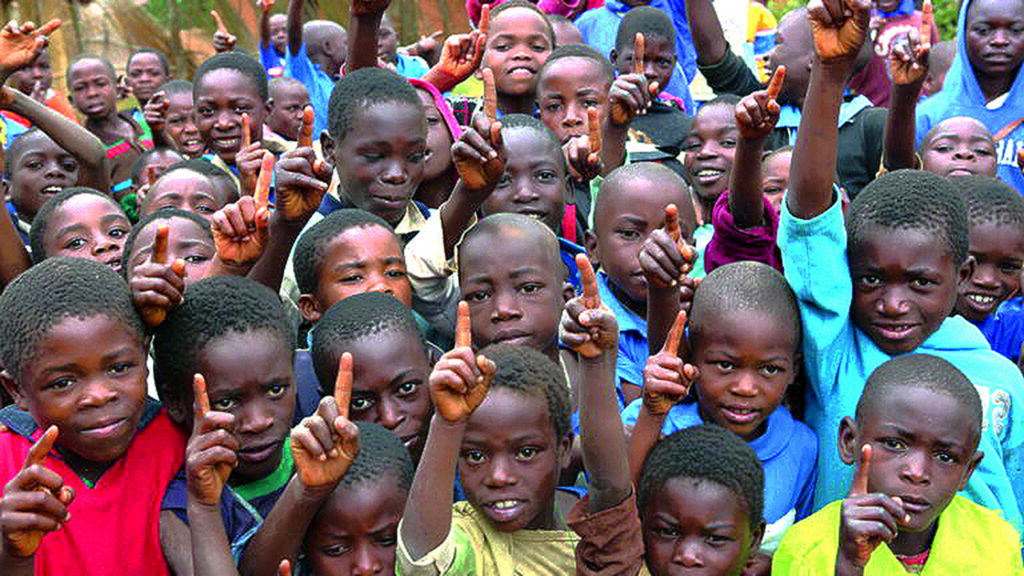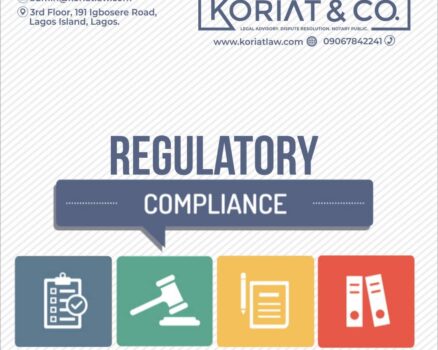
Child adoption is regulated in Nigeria though the focus of this piece is Lagos State, the commercial centre of Africa. Reports show that there has been a rise in the number of children seeking adoption in Lagos State. The rise presupposes that adoption is no longer viewed as a taboo and is gradually gaining importance among the people.
There is a plethora of factors that generally influence the adoption of a child(ren) ranging from infertility, a desire to replace a dead child or give a companion for an only child, and a desire to provide parentage for abandoned, abused or ill-treated children in society amongst others. Adoption is believed to be preferred to other forms of child care such as guardianship and fostering as it provides a permanent form of childcare.
This article highlights the keynotes on the process of adoption in Lagos State in a question-and-answer format.
What is Adoption?
Adoption is a process by which a persons (“adopters”) legally assume the role of parents in respect of a child (“adoptee”) who is not their biological child. It is also a process of vesting parental rights and duties relating to an adoptee in the adopters, based on their application to an authorized court. It is a process of transferring the rights and responsibilities of the adoptee’s biological parent/guardian to the adopter.
In the case of Ibiam v Ibiam & Anor (2017) LPELR-42028 (CA), the Court of Appeal defined adoption as:
“ the creation of a parent-child relationship by judicial order between two parties who usually, are unrelated; the relation of parent and child created by law between persons who are not in fact parent and child. This relationship is brought about only after a determination that the child is an orphan or has been abandoned, or that the parent’s parental rights have been terminated by Court order. Adoption creates a parent-child relationship between the adopted child and the adoptive parents with all the rights, privileges, and responsibilities that attach to that relationship, though there may be agreed exceptions….”
Please note that adoption is different from guardianship and fostering. The former provides a permanent form of child care while the latter is a temporary form of child care. In the case of adoption, the adoptee becomes vested with the rights of a biological child.
What legislations regulate adoption in Lagos State?
The legislations regulating adoption in Lagos state are:
i. Lagos State Child’s Rights Law No. 11 2007 (“Law”); and
ii. Family Court of Lagos State (Civil Procedure) Rules 2012 (“Civil Procedure Rules”).
Which Agency is in charge of adoption in Lagos State?
The ministry in charge of adoption in Lagos State is the Ministry of Youth and Social Development located in Alausa, Ikeja, the capital of Lagos State.
What are the different types of adoption in Lagos State?
There are three (3) types of adoption which are recognized in Lagos State and they are as follows:
i. Adoption from an orphanage home;
ii. Relative adoption – this is an adoption by anyone biologically related to a child available for adoption. For example, aunt, uncle, cousin, etc.;
iii. Step-parent adoption – This is a process where the spouse of the parent of the child adopts the child.
What are the recognized forms of adoption in Lagos State?
i. Local adoption: This is an adoption by Nigerians living in Lagos, Nigeria.
ii. Adoption by Nigerians living abroad: This type of adoption is where a Nigerian living abroad seeks to adopt a child in Lagos State.
iii inter-country adoption: This relates to adoption of a child in Lagos State by foreigners.
Who Can Adopt a Child in Lagos State?
By virtue of section 121 of the Childs Right Law, the following persons are eligible to adopt a child in Lagos State:
i. Any married couple not less than 25 years of age and possess a Court Order authorising them jointly to adopt a child;
ii. Any married person who has the consent of his/her spouse to adopt a child;
iii. Any single person, of not less than 35 years old provided that the child to be adopted is of the same sex as himself/herself.
Please note that, in all cases, the adopter(s) must be certified by the appropriate investigating officers as a person of unquestionable and suitable character to adopt the child.
Who Can be Adopted?
By virtue of Section 118 of the Law, the following persons are eligible to be adopted:
i. a child whose parents consent to the adoption; or
ii. an abandoned, neglected, persistently abused or ill-treated child.
Please note that by virtue of Section 261 of the Law, a child is defined to mean any person under the age of 18 years. It then presupposes that only a child below the age of 18 is eligible to be adopted in Lagos State.
Can a Foreigner adopt a Child in Lagos State?
Yes, a foreigner living abroad can adopt a child in or from Lagos upon fulfilling the requirements for adoption.
Can Nigerians living abroad adopt a child in Lagos?
Yes, Nigerians living abroad are also eligible to adopt a child in or from Lagos upon fulfilling the requirements for adoption.
What are the requirements for processing adoption in Lagos State?
i. Applicant’s employment letter, pay slips, and bank statements;
ii. Tax clearance returns for three years prior to the application;
iii. Recommendation letter from a colleague in the applicant’s place of work, or business partner or employer;
iv. Residential address and pictures of the applicant’s home.
v, Marriage certificate or a sworn declaration of marriage (where the applicants are married);
vi. Birth certificate or sworn declaration of age of each applicant;
vii. passport photographs of each applicant;
viii. a medical certificate of fitness of the applicant from a Government hospital and other documents which the commission shall require.
ix. additional documents that will assist in processing the application.
Please note that the Adoption Unit of the Ministry may require additional information from the applicants from time to time.
What are the procedures for adoption in Lagos State?
The step-by-step procedures for adoption in Lagos State are as follows:
1. The proposed adopter (applicant) must submit application letter, addressed to the Permanent Secretary, Ministry of Youth and Social Development, Alausa, Ikeja, Lagos State.
2. The Applicant will be called up for an interview/briefing with the Director of Social Welfare/Officers from the Adoption/Fostering Unit on an appointed date. The applicant may be given registration forms with a list of requirements for adoption.
3. The applicant will be required to complete the registration forms and provide the requirements.
4. The applicant will then be assigned to an adoption officer and given a letter to take to a government-owned hospital for medicals.
5. The Adoption Unit will then commence the administrative processing, screening of the applicant and home assessment.
6. Upon conclusion of the assessment, the applicant will be required to pay the applicable administrative fees.
7. Applicants will be required to appear before an adoption panel. The panel is composed of police officer(s), a representative(s) from the immigration service, a permanent secretary, a magistrate and a top personnel from the Ministry.
8. An approval letter is then issued to the applicant with an attachment of the list of registered orphanages for matching of child/children.
9. Applicant will visit the orphanages with the approval letter and passport photograph to choose the child/children.
10. A date will be communicated to the applicant by the Ministry to engage in a post-counselling (proper parenting) exercise.
11. Where the Ministry and the applicant are satisfied, the child(ren) will be released from the orphanage to the applicant for bonding.
12. The Ministry will carry out a bonding assessment and where satisfied, the case will be referred to the Family Court, Lagos for proper documentation and legalization of the adoption process.
13. The Court makes an adoption order.
Please note that for Nigerians living abroad and foreigners, a prospective adopter may apply personally or through a Foundation. Such applicant will be required to submit in addition to the above, the following:
i. A document showing their residency status in a foreign country.
ii. Notification of Arrival of the applicant after successfully matching the child at the registered orphanage.
Which court has the power to make an adoption order in Lagos state?
By virtue of the Law, a High Court or Magistrate Court designated as a “Family Court” in line with the Civil Procedure Rules can make an adoption order in Lagos State.
What are the factors that may frustrate an adoption application in Lagos State?
By virtue of Section 123 of the Law, the Court may refuse to make an adoption order where any or a combination of the following grounds is established by the investigation officers or upon review of the application for adoption:
i. The applicant is not a fit and proper person.
ii. The applicant is less than 25 years of age.
iii. The applicant fails to inform the social welfare officer of his/her or their intention of adopting the child at least twelve months before the granting of the order.
iv. In the case of a married couple consisting of a parent and a step-parent of the child, the court may dismiss the adoption application where such matter can be dealt with under possession and custody of children.
What is the estimated timeline for processing an adoption in Lagos State?
The entire adoption process can be completed between 12 to 18 months.
What are the applicable administrative charges for processing an adoption in Lagos?
The administrative fee for processing local adoption in Lagos State is about N150,000.
The cost for processing adoption by Nigerians living abroad is about N200,000.
For inter-country adoption, the administrative fee is about 300,000.
In addition to the above, there may be professional fee and miscellaneous expenses which are available on request.




